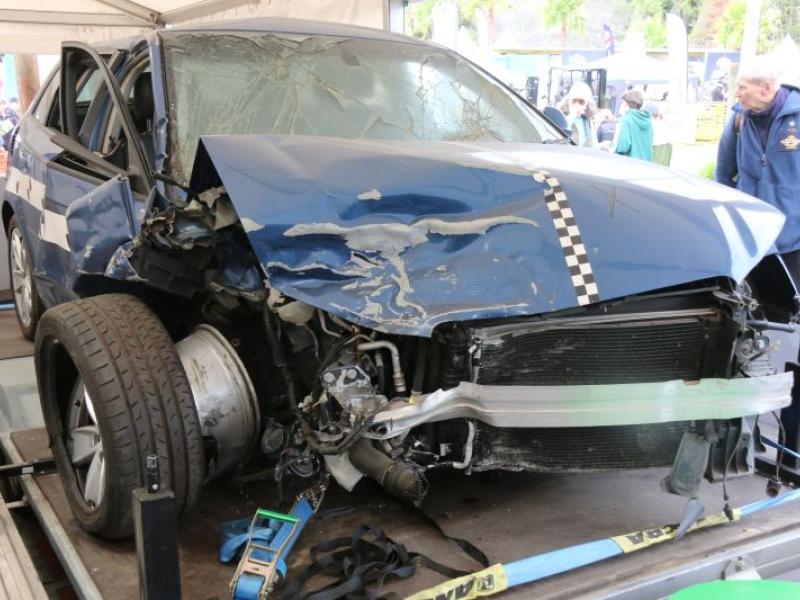The answer is Yes – whenever the existing fleet gets too old, too tired or too high in mileage and becomes a major liability.
Which is all well and good if you are in the happy position of having a fleet manager or outsourced agency monitoring the status of your fleet, but if not, well then it comes down to somebody at the top making the call – that’s probably you.
For this reason, so many New Zealand businesses subscribe to the idea of outsourced fleet management; even if you are one such company, you may find this article a little thought provoking.
We are talking about the dark art of bringing vehicles into your business asset list and getting rid of those that are more expensive than you might think to keep on the books; and dark art certainly summarises the science well.
There is quite a lot to take onboard when it comes to acquiring vehicles, but most of you aren’t druids with the ability to draw on eons of research in musty old halls, so, grab a coffee, and we’ll try to break it down for you.
From a Greenfields perspective, right now is a really good time to start adding to
your fleet.
No really, the best time is right now. We’re nearly at the end of the year, so the new product is already mostly here – this means a lot of near new product still around has to be got gone – preferably by yesterday – so dealers are likely to be quite accommodating when it comes to price reductions.
Of course, this means you are going to be looking at not-quite-new, which a great many businesses will find an attractive proposition, but before you start bouncing into your local dealership, chequebook in hand, you might want to think about the far distant future and resale-ability – particularly if the late model vehicle you are looking at already has its next gen replacement here.
First, you probably won’t get the fully realisable financial life expectancy out of your bargain-priced run-out and second, when you try to dispose of it, there may be more similar vehicles out there than you think, which is going to hurt as well as make it difficult to move the fleet along.
Those reasons alone should be enough to make you sit up and pay attention to the merits of investigating a little beyond the one-model-back from the latest offering from your favourite brand.
So, you have to know your onions as they say, which means research.
Looking into your fleet though, particularly when it comes to acquiring vehicles, is actually a very detailed and time-consuming process, which is why many put it into the ‘’too hard’’ basket and let the new breed of lease company do the hard yards in this respect.
Smart business practice suggests you be proactive when it comes to your dealings with your lease company, which means you’ll need at least a passing interest in what’s going on.
If you don’t have this, employ someone who does.
For instance, with the rise and rise of the electric/plug in hybrid/battery hybrid vehicle and the rising cost of fuel, you might want to ask your fleet provider about the possibility of an alternatively-powered vehicle.
If so, you are going to have to be mindful of your timing too, as most dealerships will have to go back to their parent distributor for an order of anything over three electric vehicles. If you need 15 or more EVs urgently, you may not have the option of looking at electric vehicles unless you have a good working relationship with a distributor.
What about diesel then? There’s plenty of available options and it’s cheap at the pump, right? There’s plenty of ways to save there.
Yes, it is and yes there are, but does your fleet justify the additional cost of road user charges and more expensive servicing?
Typically, it’s understood that for a diesel to pay its way, your vehicles are going to be doing something in excess of 50,000kms a year to be cost effective.
And let’s not forget your drivers. They
may not appreciate having a diesel as much as your CFO might and – while it’s not an issue now – you should be asking yourself
if a diesel is going to be resaleable down
the track?
Why wouldn’t it be?
Historically, we follow European trends and right now Europe is not a big fan of diesel, especially in cars. This means you’ll save on fuel now yes, but will those at the pump savings work out when a high km oil-burner is ready to be moved along?
Not wanting to be a doomsayer, but this line of thinking just serves to alert you to how much deep consideration you could or should be looking at when it comes to adding to your fleet.
Then there’s the question of where do the vehicles come from?
Let’s face it, in New Zealand, there are plenty of options: dealers, distributors, wholesalers or auction houses. And let’s not open up the royal can of worms that is the used vehicle market. That’s a sub-science in itself, though it appears to be an easy option on the surface.
But looking at the primary buying market options; which is the best bet for your organisation? You can start by determining how many vehicles and of what type, you’ll be buying.
For multi-vehicle, multi-brand fleet buys, auction houses may be the way to go, assuming you have the time. Remember too, if your fleet requires accessory fitout – and most would considering the by-the-short-and-curlies hold OSH has put on fleet operations – you’ll need to make sure your fitouts are compatible with the variety of vehicles you may end up with.
If you are going to go auction shopping – and you will get some mean deals on transactional pricing – you really will have to do your homework for known service issues, recall history, service history and how easy it is going to be to keep up a maintenance schedule in terms of parts availability at the very least.
You’ll need to research quite heavily, though you’ll definitely have control of what you buy, but caveat emptor – let the buyer beware – applies most strongly here.
Traditional dealerships may offer you better terms when it comes to finance on the cars, and while you may not need a magnifying glass anymore to read the ‘transparent’ fine print, don’t get bulldozed into making a ‘buy now’ decision.
Take your time, compare apples for apples when it comes to financial commitments and don’t forget to ask about total cost of ownership figures – how much the vehicle will cost from cradle to grave with all servicing and maintenance figures worked in, preferably from a third party or another independent source.
Commercial specialist dealers would be the best go to for anything to do with buying/leasing or otherwise acquiring their more specialised product. Light commercial vehicles are not the same as buying cars only bigger. There is plenty to consider that you like as not have not even thought of.
An example? OK, Empty van weight compared with fully laden van weight. Do you need to factor in dual rear wheels given the cargo you may be carrying or the additional weight of equipment you have onboard?
What about driver licensing? When a big van is fully loaded, technically it could become a Class 2 and if your driver doesn’t have that little endorsement and the worst case happens – an accident – don’t expect sympathy from your insurer or OSH or even necessarily ACC. And you bought the van, so it will become your problem.
Unless you – as the pro tem fleet acquisition person – drive a van by personal choice as a daily commuter, it’s definitely smart to talk with a commercial specialist.
A vehicle distributor – assuming you can talk to one directly – will likely best look after your bulk vehicle needs and discount considerations, assuming the numbers of vehicles stack up to make the conversation a worthwhile one for the distributor.
You’ll get better guidance on your vehicle selection from the brand’s range too.
So yes, there’s a lot to consider when acquiring vehicles for your fleet, but the key to it all is information first and foremost.
While a third, a third, a third or one percent finance deals sound great, there may be other aspects to consider. Would a lease package work out to be a better bet?
Taken holistically, with the additional services offered by leasing companies, which ultimately make fleet management a less onerous task than it would be without, maybe leasing is the better option.
It makes sense then to do your homework, get as much information from as many sources as possible and keep an eye on the end game result, which in terms of fleet vehicles is about three to four years or 100,000kms for sales vehicles and four to five years or 160,000kms commercials.
For most companies a fleet vehicle is little more than a depreciating asset. Smart business sense would be to minimise the impact any depreciating assets are going to have on your ultimate bottom line.
The science of vehicle acquisition
Fleet Management
Thursday, 06 December 2018
File Download:






